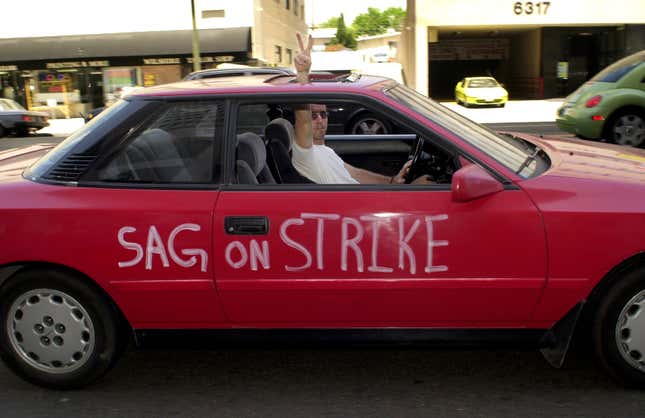SAG-AFTRA Will Join WGA on the Picket Line, Effectively Shutting Hollywood Down
"I am shocked by the way that people we have been in business with are treating us," SAG-AFTRA's Fran Drescher said of studios failing to engage in good faith.
Entertainment

Seventy-two days into the WGA writers’ strike, SAG-AFTRA, the actors’ union, will join their entertainment brethren on the picket line. Union leadership announced the strike during a press conference on Thursday afternoon, and said it would commence at midnight, after the Alliance of Motion Picture and Television Producers (AMPTP) “refused to meaningfully engage on some topics and on others completely stonewalled” SAG-AFTRA during negotiations, according to union president Fran Drescher (yes, from The Nanny).
“We are being victimized by a very greedy entity. I am shocked by the way that people we have been in business with are treating us,” Drescher said during the press conference. “I cannot believe it quite frankly—how far apart we are on so many things, how they plead poverty, that they are losing money left and right when giving hundreds of millions of dollars to their CEOs. It is disgusting. Shame on them. They stand on the wrong side of history.”
“What we ultimately received from them is what my mom would call ‘a leck and a schmeck,’” she added.
The last time both the WGA and SAG-AFTRA were on strike was 1960, when Ronald Reagan was the actors’ union’s president. Both of these unions striking simultaneously effectively shuts down Hollywood.
-

-

-

-

-

-

-

-

-

-

-

-

-

-

-

-

-

-

-

-

-

-

-

-

-

-

-

-

-

-

-

-

-

-

-

-

-

-

-

-








































